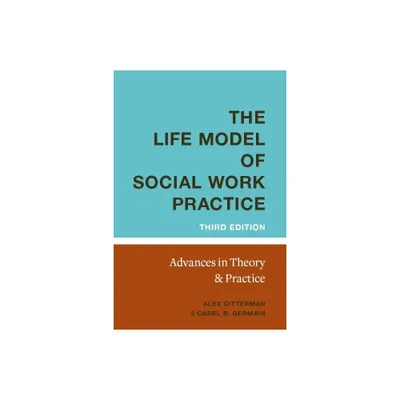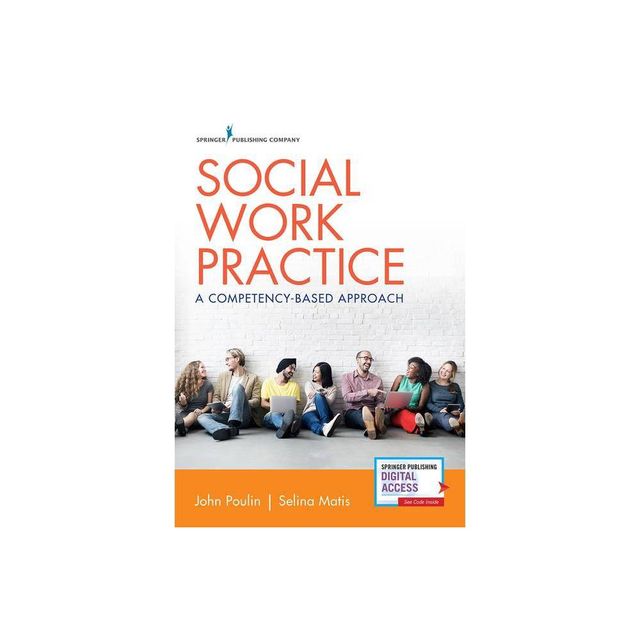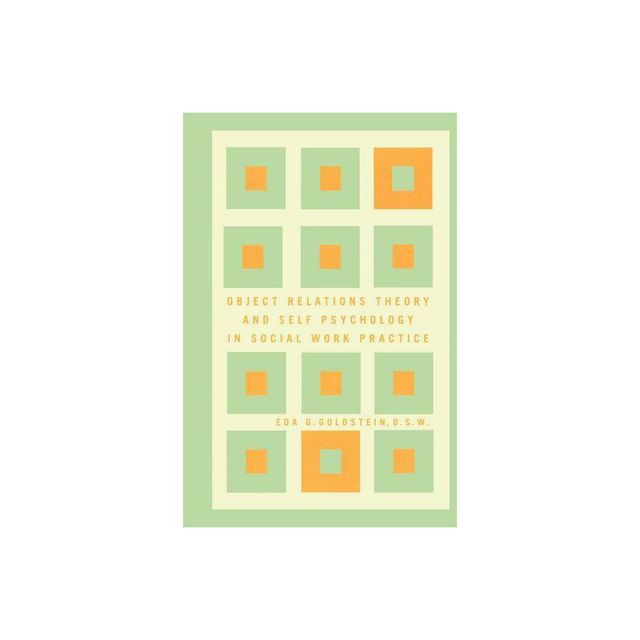Home
The Life Model of Social Work Practice: Advances Theory and Practice
Loading Inventory...
Barnes and Noble
The Life Model of Social Work Practice: Advances Theory and Practice
Current price: $80.00


Barnes and Noble
The Life Model of Social Work Practice: Advances Theory and Practice
Current price: $80.00
Loading Inventory...
Size: Hardcover
*Product Information may vary - to confirm product availability, pricing, and additional information please contact Barnes and Noble
Originally published in 1980,
The Life Model of Social Work Practice
was the first textbook to introduce the ecological perspective into social work practice. This fourth edition brings the text up to date by expanding and deepening this perspective. Integrating contemporary theory and research findings with numerous case illustrations drawn from a wide range of practice contexts, this textbook provides students with an invaluable introduction to the real world of social work practice and includes knowledge, methods, and skills for advanced practice.
The authors detail the theoretical foundation of the ecological perspective and the life model’s emphasis on evidence- and ethics-guided practice, culturally competent and diversity-sensitive practice, and the multiple sources of accountability that social workers face. The text features an extensive discussion of the principles of trauma-informed practice and their implications for social work practice. Its discussion of cultural competence and sensitivity to diversity incorporates contemporary concepts such as cultural humility and privilege, intersectionality, and critical race theory and presents their application to practice. The authors integrate current research throughout the text and provide numerous research applications to underscore and model the importance of evidence-guided practice.
The fourth edition reflects the National Association of Social Workers Code of Ethics and the Council on Social Work Education’s most recent set of competency standards, which accredit social work schools and programs. It is accompanied by a teachers guide that provides chapter summaries, recommended teaching methods and skills, questions for discussion, and suggested assignments and identifies where in the text the nine EPAS competencies and their associated practice behaviors are addressed.
The Life Model of Social Work Practice
was the first textbook to introduce the ecological perspective into social work practice. This fourth edition brings the text up to date by expanding and deepening this perspective. Integrating contemporary theory and research findings with numerous case illustrations drawn from a wide range of practice contexts, this textbook provides students with an invaluable introduction to the real world of social work practice and includes knowledge, methods, and skills for advanced practice.
The authors detail the theoretical foundation of the ecological perspective and the life model’s emphasis on evidence- and ethics-guided practice, culturally competent and diversity-sensitive practice, and the multiple sources of accountability that social workers face. The text features an extensive discussion of the principles of trauma-informed practice and their implications for social work practice. Its discussion of cultural competence and sensitivity to diversity incorporates contemporary concepts such as cultural humility and privilege, intersectionality, and critical race theory and presents their application to practice. The authors integrate current research throughout the text and provide numerous research applications to underscore and model the importance of evidence-guided practice.
The fourth edition reflects the National Association of Social Workers Code of Ethics and the Council on Social Work Education’s most recent set of competency standards, which accredit social work schools and programs. It is accompanied by a teachers guide that provides chapter summaries, recommended teaching methods and skills, questions for discussion, and suggested assignments and identifies where in the text the nine EPAS competencies and their associated practice behaviors are addressed.


















